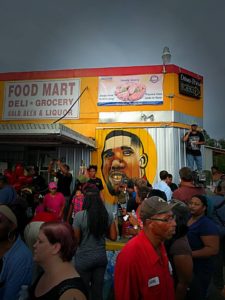Following is a brief account I wrote for The Sun magazine’s 500th issue in August 2017. It’s about my dad’s last visit to Montana, his true heartland.
After my father retired, he would fly twice a year from Texas to Montana, where he and his brother would spend a few weeks at the family cabin, fishing, joking, cooking, hiking, and drinking Gentleman Jack whiskey. Later they would regale us with tales of bear sightings and flirtations at the local bar and grill.
As Dad got older and more confused, the trips became less frequent, then stopped. He missed the cabin terribly. When he was eighty, my brother and I decided to get him there one last time.
I’ll always remember the look of wonder on Dad’s face as he realized what we were proposing: I would fly up with him and stay the first week. Then my brother would fly in to get Dad through the second week and the trip home. It sounds simple, but it was a complicated undertaking. The logistics of traveling with an obstinate retired Army colonel with a walker, a pacemaker, a pain-medication pump, and an unpredictable bladder were considerable.
There was a heavy early snowfall in southern Montana that year. Once situated at the cabin, Dad seldom left. But just sitting on the battered leather couch in front of a crackling fire, with the coffee percolator wheezing in the kitchen, was good for him. I’m a coffee snob, but I’ve never enjoyed a gourmet Italian roast as much as I did the steaming Folgers I shared with my dad.
One afternoon I found him in the bedroom, standing before a picture of a bear catching a fish. He’d probably passed that picture hundreds of times over the years, but now he studied it with wonder. He must have stood there for at least five minutes. I didn’t want to break his trance.
I count getting my frail father to Montana one last time among my greatest accomplishments.
Actually, that was his second-to-last trip to the cabin. The true final visit happened a few years later, when the family gathered there one June for a reverent communion of whiskey and oatmeal cookies—Dad’s favorite. Then we four kids and his brother scattered his ashes around the woodpile and the cabin’s foundation, in the stream, and under the trees.






